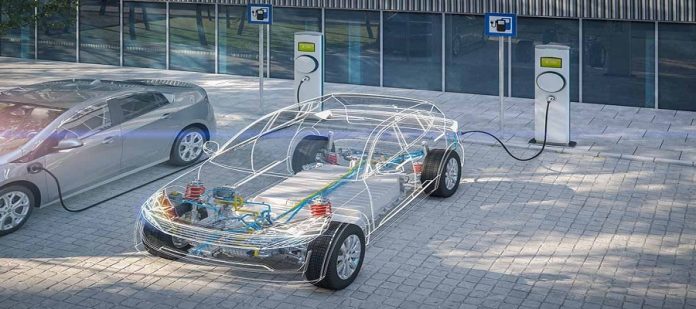In a significant development, scientists at the University of Maryland have unveiled a groundbreaking advancement in electric vehicle (EV) battery technology, promising improved safety through solid-state battery designs.
Electric vehicle batteries hold a pivotal role in shaping the future of EVs, influencing their design, range, and overall efficiency. These power sources have a direct impact on charging infrastructure and environmental sustainability. Furthermore, their cost and weight are pivotal factors in determining the viability and market acceptance of electric vehicles. All-solid-state batteries are positioned to offer enhanced safety compared to traditional electric and internal combustion vehicles. However, tackling the challenges associated with this technology has been a formidable task.
The researchers at the University of Maryland have introduced a groundbreaking technology that enhances the safety and energy storage capabilities of forthcoming electric vehicles and other electronic devices. Their research addresses a critical issue in all-solid-state lithium batteries, specifically the growth of lithium dendrites, which are harmful branching structures that have hindered the widespread adoption of this promising innovation.
To mitigate the formation of dendrites, the researchers have designed a novel “interlayer” for batteries, potentially paving the way for practical solid-state batteries in electric cars. Their approach focuses on stabilizing the interfaces between the solid electrolyte and the anode (where the battery receives electrons from a circuit) and between the electrolyte and the cathode (where the battery releases energy).
In this innovative battery design, a fluorine-rich layer has been incorporated to stabilize the cathode end, while the anode’s interlayer has been fortified with magnesium and bismuth, effectively preventing the growth of lithium dendrites. As Chunsheng Wang, a researcher at the University of Maryland, explained, “Solid-state batteries are next-generation because they can achieve high energy and safety. In current batteries, if you achieve high energy, you’ll sacrifice safety.”
Solid Power is now poised to conduct tests on this groundbreaking battery technology with the aim of introducing it to the market by 2026. The researchers believe this step is crucial in assessing the commercial viability of this game-changing technology.








